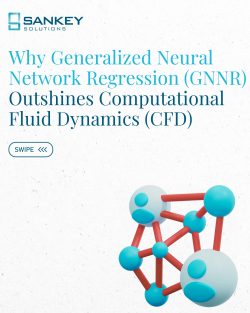The Weeknd’s “Blood”: Exploring the Dark and Introspective Themes
The Weeknd, born Abel Tesfaye, has carved out a completely unique area in the song industry with his haunting melodies, introspective lyrics, and one-of-a-kind voice. One of the routine themes in his work is the exploration of darker aspects of human emotion and reveling in them. “Blood,” a tune that delves into those topics, stands as a testimony to The Weeknd’s capacity to combine deep emotional content with compelling musicality. This article explores the significance of “Blood,” its topics, and its effect on listeners.
The Emotional Depth of “Blood”
“Blood” is a track that encapsulates the uncooked emotion and vulnerability that The Weeknd often conveys in his tune. The track delves into themes of ache, betrayal, and the lingering effect of broken relationships. Through his poignant lyrics and evocative shipping, The Weeknd invitations listeners into a global in which love and pain are inextricably linked.
Lyrical Themes
The lyrics of “Blood” are a window into The Weeknd’s psyche, revealing his struggles with agree with and emotional scars. Lines like “You took my heart and tore it aside, now I’m bleeding” replicate an experience of betrayal and the deep wounds left by a tumultuous relationship. This theme of emotional bleeding is an effective metaphor for the lingering ache that follows a big loss or betrayal.
Musical Composition
The musical composition of “Blood” complements its lyrical content flawlessly. The track capabilities a moody, atmospheric manufacturing that creates a sense of depression and introspection. The use of reverb-weighted down beats, haunting synths, and The Weeknd’s airy vocals integrate to create a soundscape that is fascinating and haunting. This mixture of tune and lyrics enhances the emotional effect of the track, drawing listeners into its darkish and introspective international.
The Impact of “Blood” on Listeners
“Blood” has resonated deeply with lovers of The Weeknd, many of whom relate to its themes of heartache and betrayal. The music’s raw honesty and emotional depth strike a chord with listeners who’ve skilled comparable emotions in their personal lives. This connection between the artist and audience is a testament to The Weeknd’s capacity to articulate complex feelings through his track.
Fan Reactions
Fans have taken to social media to specify how “Blood” has impacted them, with many sharing private testimonies of ways the music’s subject matters mirror their very own experiences. This shared emotional journey creates a feeling of network amongst listeners, fostering a deeper connection to the track and to every other.
Critical Reception
Critics have also praised “Blood” for its lyrical intensity and musical innovation. The song has been highlighted as a standout example of The Weeknd’s capability to combo mainstream enchantment with profound emotional content material. This stability between business achievement and artistic integrity is a key component in The Weeknd’s enduring reputation.
The Weeknd’s Artistic Evolution
“Blood” is a part of The Weeknd’s broader inventive evolution, showcasing his increase as a songwriter and musician. Over the years, he has transitioned from underground mixtapes to mainstream success, all whilst keeping a one-of-a-kind and authentic voice. “Blood” is a reflection of this adventure, illustrating his capability to usually push innovative obstacles and discover new emotional territories.
From Mixtapes to Stardom
The Weeknd’s early mixtapes, consisting of “House of Balloons,” brought listeners to his dark, atmospheric sound and introspective lyrics. As he received popularity, he persisted in evolving, experimenting with one-of-a-kind musical patterns and topics. “Blood” is a culmination of this evolution, mixing the raw emotion of his early work with the polished production of his later albums.
Continual Innovation
Through out his career, The Weeknd has been recognized for his willingness to take dangers and innovate. “Blood” is no exception, because it pushes the limits of traditional R
























































